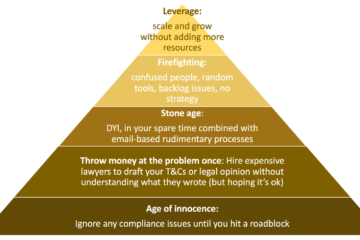Peter Thiel Says Planning is Bad… Seriously? 🤯
Before writing this email, I took a long walk and re-listened to some of my favorite parts of Peter Thiel’s book “Zero to One” about entrepreneurship and startups. He talks a lot about the early PayPal days.
I especially liked the chapter about the dot-com times of the 2000s and how to differentiate real substance from “bubbles” (because I feel we all may have just recently experienced a crypto bubble).
Here is what he suggests was true when everyone was talking about the potential of the internet, but very few people were actually delivering real projects:
- Be suspicious of founders who speak about grand vision and disrupting everyone or changing the world. People who speak about continuous incremental advances are way more reliable.
- Lean = unplanned = good (this is hard to digest, I know 😉). The idea is – you should not know what your business will do and planning, in general, is arrogant and inflexible. Instead, Peter Thiel advocates for trying things out and iterating and doing “agnostic experimentation” (aka “let’s see if this works.“)
- Never assume that your customers don’t know what they want, don’t try to create new demand or new market. Instead, improve on the competition. Start with existing customers and sell them something new or make them upgrade to a premium service.
- Focus on product, not sales. If your product requires advertising or salespeople to sell it, it’s not good enough: technology is primarily about product development, not distribution.
Funnily enough, later in the book he turns it around and says that the opposite statements could also be true (but at a different stage, in a more mature and contested space):
- “It is better to risk boldness than triviality.” ➝ (I guess, it’s his way of saying “dream big while you can”?)
- A bad plan is better than no plan ➝ (yes, this sounds a bit more responsible 😉)
- Competitive markets destroy profits ➝ (can someone please bring Uber to Luxembourg?)
- Sales matters just as much as product ➝ (actually, there is a whole chapter in the book about how many projects fail because they have a great product and bad distribution).
Would you rather subscribe to the first set of conclusions or to the second? 💭


